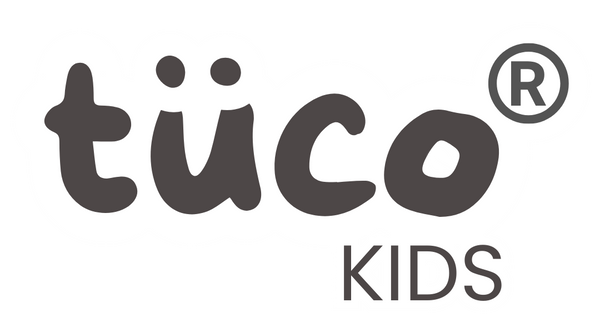
Cough Syrup for Kids: Is It Safe, Side Effects, and Better Alternatives Parents Should Know
Are Cough Syrups Good for Kids?
Cough syrups are designed to suppress cough (antitussives), loosen mucus (expectorants), or relieve allergy-related cough (antihistamines). While they can help adults, children’s bodies process medicines differently.
-
Under 2 years: Pediatricians strictly advise against cough syrups. They can cause serious side effects, including slowed breathing.
-
Ages 2–6 years: Most cough syrups are not recommended unless specifically prescribed. Simple colds and coughs usually clear on their own.
-
Ages 6–12 years: Some syrups may be prescribed by doctors in small doses but only after ruling out other causes.
- 12+ years: Children may use some over-the-counter cough syrups, but still under guidance.
Bottom line: Cough syrup is not a quick-fix for kids. In most cases, the body heals naturally without it.
Side Effects of Cough Syrup in Kids
Giving cough syrup to children ,especially without prescription can cause:
-
Drowsiness or dizziness
-
Upset stomach or nausea
-
Increased heart rate (with certain ingredients like decongestants)
-
Allergic reactions (rash, itching, difficulty breathing)
-
Overdose risks (kids are more sensitive to ingredients like codeine or dextromethorphan)
In rare cases, misuse can lead to life-threatening breathing problems.
How Long Can Kids Take Cough Syrup?
-
If prescribed by a pediatrician, cough syrups are usually recommended for no more than 3–5 days.
-
Long-term use can mask underlying conditions like asthma, allergies, or infections.
-
If a cough lasts more than 7–10 days, parents should seek medical advice instead of repeating syrup doses.
Parent Tip from Tuco Kids: Instead of reaching for cough syrups right away, try safe and gentle remedies first. Warm fluids, a humidifier in your child’s room, or honey (for kids over 1 year old) can help soothe coughs naturally. Always talk to your pediatrician before giving any over-the-counter medication to children.
And while you care for your child’s comfort, don’t forget their skin needs too. Tuco Kids’ range of soaps, lotions, shampoos, and soothing gels are specially designed for ages 3–14 to keep delicate skin hydrated, calm, and protected -every day, not just during sick days.
Alternatives to Cough Syrup for Kids
Instead of reaching for medicine immediately, try these safe, effective remedies first:
1. Warm Fluids:
Warm water, mild soups, or herbal teas (like tulsi or ginger tea for older kids).
Helps soothe throat irritation and loosen mucus.
2. Honey (Above Age 1.5)
A spoonful of honey before bedtime can reduce nighttime cough.
Honey coats the throat and has natural antibacterial properties. Never give honey to infants under 1.5 year due to risk of botulism.
3. Steam Inhalation:
Gentle steam from a bowl of hot water or shower helps clear nasal passages.
For toddlers, keep the bathroom steamy and sit together for 5–10 minutes.
4. Building Good Hygiene Habits to Prevent Cough
Simple hygiene routines can greatly reduce coughs in kids. Encourage handwashing before meals and after play, a quick bath with gentle kids’ soap to wash off dust and germs, and covering mouth or nose with a tissue or elbow when coughing or sneezing. These small steps keep infections away and build healthy lifelong habits.
To make these routines easier, Tuco Kids offers a thoughtful range of skin and hair care from mild bathing bars and lightweight lotions to safe shampoos. Each product is crafted for ages 3–14, helping children stay fresh, protected, and ready for their daily adventures.
5. Saline Drops or Spray:
Saline nasal drops moisturize the nose and reduce post-nasal drip (a common cause of cough).
6. Elevating the Head During Sleep:
Use extra pillows or slightly raise the mattress head.
Helps mucus drain and reduces night-time coughing.
7. Humidifier in the Room:
Adds moisture to dry air and prevents throat irritation.
8. Herbal Remedies (with caution):
Tulsi (holy basil), ginger, or turmeric milk may help — but always in child-safe amounts and after consulting a doctor.
Precautions Before Giving Kids Cough Syrup
-
Always check age limits on the label.
-
Never give adult cough syrups to kids.
-
Avoid “mixing” medicines (like combining cough syrup with fever syrup unless prescribed).
-
Read ingredients carefully: Some syrups contain alcohol or codeine, which are unsafe for kids.
-
See a doctor if:
Cough lasts more than 7 days
Child has fever, wheezing, or breathing trouble
Cough sounds barky or whooping
Cough syrup is not always the best first step for kids. In many cases, cough is the body’s way of clearing irritants and heals naturally. Instead of rushing to medicines, parents can start with safe home remedies, fluids, rest, and comfort care.
If coughs persist or worsen, always consult a pediatrician. With the right mix of patience, natural remedies, and medical advice when needed, children can recover safely without unnecessary risks. In addition, ensuring that your child stays hydrated and gets plenty of rest is crucial for a swift recovery. For cases where fever accompanies the cough, seeking effective fever relief for kids can help ease their discomfort and make them more comfortable. Remember, it's always best to monitor their symptoms closely and seek professional guidance if you have any concerns.

